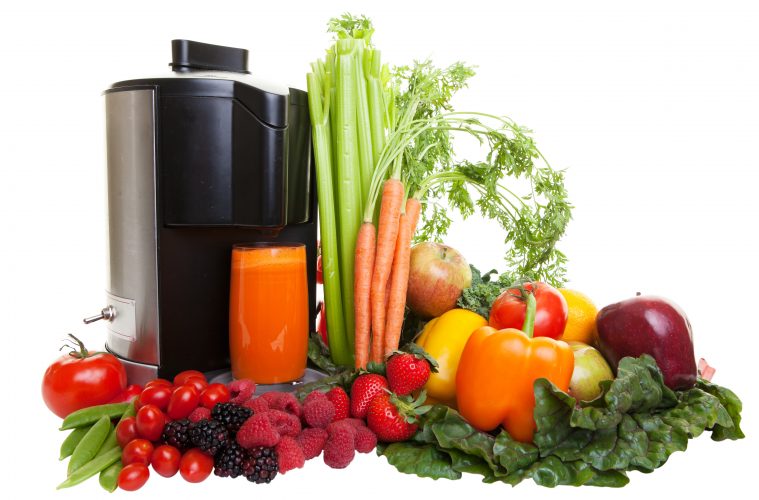With UK kitchenware giant Lakeland reporting a 4000% hike in juicer sales last year, juicing is more popular than ever, but is juicing any more beneficial than simply upping your daily intake of fruit and veg?
It’s true that processing fruit and veg by juicing it before it hits the stomach gives the digestive system a rest and helps the digestive system run more efficiently overall. Also drinking raw vegetable juices demands the gut break down only one food group at a time, allowing for speedier digestion.
However, nutritionist Ilona Wesle from MyDetoxDiet.co.uk says that the overall the answer to the ‘is juicing really good for you’ question isn’t clear-cut; downing the juice of fruit and vegetables essentially means consuming the water they hold as well as much of their vitamin and mineral goodness, but juicing also removes complex fibres and can send your sugar levels sky high.
So can you be sure that juicing is good for you? Wesle offers some tips to help you get the best out of juicing and avoid the downsides:
1) Eat your fruit and juice your veg
Pure fruit juices – especially pre-packaged varieties – can be high in fructose sugars (and therefore carbs and calories), but green juices made mostly from vegetables like spinach, kale and beetroot are great news for health-junkies. However, downing a pint of green juice that contains a whole bag of kale won’t give you the same nutrient dose as you would get from eating that kale steamed.
Tip: Fruit juices are high in calories and should be taken in moderation, but green juices made purely of vegetables can become dull for the taste buds. Add an apple or some kiwi to your vegetable juice for some added sweetness.
2) Get your fibre fix
Most fibre in fruit and vegetables is all but completely lost in the juicing process if that pulp isn’t substituted into your diet somehow and a diet based entirely around fruit and vegetables can become protein deficient. If you’re not careful your juice habit could soon become a high-carbohydrate, low-protein and low-fibre habit. Not great for energy levels, hunger management or mood. You need protein to keep your metabolism ticking over properly.
The solution? Make sure your diet, aside from juicing, is protein-rich and fibrous, or try to incorporate fibre and plant-proteins into your juices: artichoke, asparagus, beetroot, broccoli, carrot, onion, sweet potato, spinach and watercress for example. Chia and flax seeds are both great sources of dietary fibre and protein – so throw in a handful. If you are juicing fasting using a juicing company, then make sure the juices contain some protein. You’ll feel more energized and overall get a better result.
Tip: Get that lost fibre back into your diet by using the pulp left behind from juicing and scooping some right back into your juice before you drink it. Alternatively, mix the pulp into your fruit muffin or pancake batter, or use vegetable pulp as a base for your homemade soup. Waste not, want not!
3) Chop, blend or press?
If you can stretch to it and you’re serious about your juicing, a cold press juicer will retain a huge proportion of the nutrients in your juice ingredients. By crushing the fruit and vegetables gently rather than whizzing it all up using blades and heat, fewer enzymes are obliterated in the process and more nutrients saved and passed onto you. Think of the juicing process as one that literally aggravates the food whereas the act of pressing is far gentler and healthier. This is the key difference in quality between juicing and pressing. If you are buying juices from a juicing company – then make sure they are pressed. These will be far higher quality.
Tip: If your leftover pulp is still fairly wet once you’ve juiced, put it through again and see how much more juice you can extract from it before you either discard it or find another use (see tip above) for this source of fibre. Drink immediately for full nutritious value or refrigerate for no longer than two days.
By following these tips juicing can be a healthy part of your diet and great way to detox – but do be sure you’re getting enough fibre and protein and if possible go for pressed juices only.

